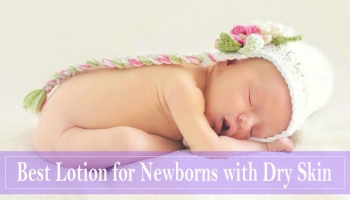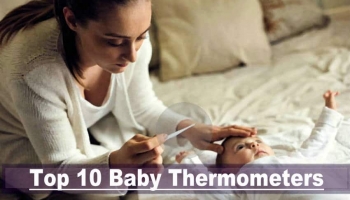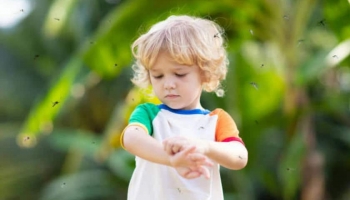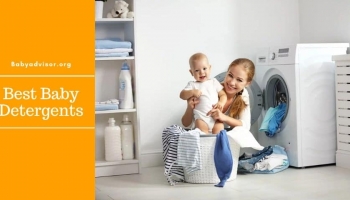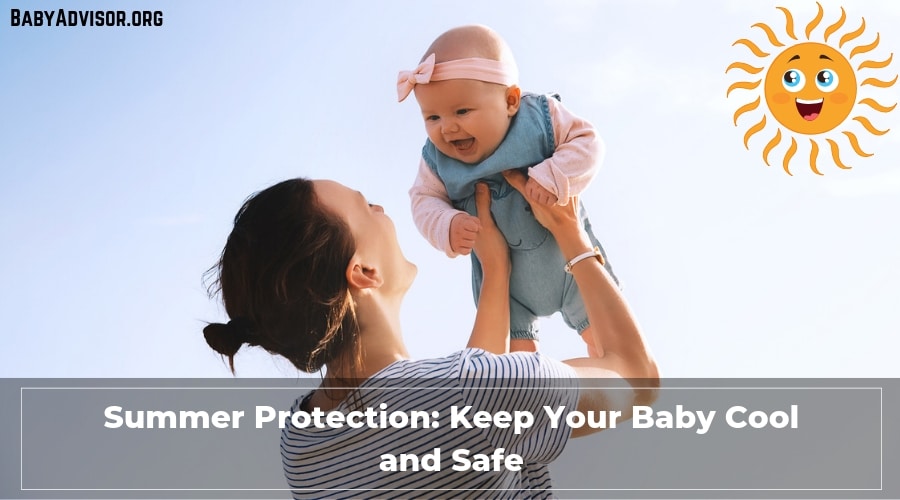
Summer is meant for fun in the sun, but keep your baby cool and safe this summer is vital. Babies are more prone to heat exhaustion and dehydration.
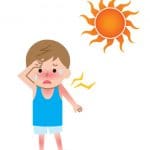
There is a fine balance that parents need to meet. Overdressing a baby can lead to a heat rash or overheating. However, if you put your baby in the hot temperatures without proper coverage, then he might experience a terrible sunburn or heatstroke.
How Heat Affects Babies
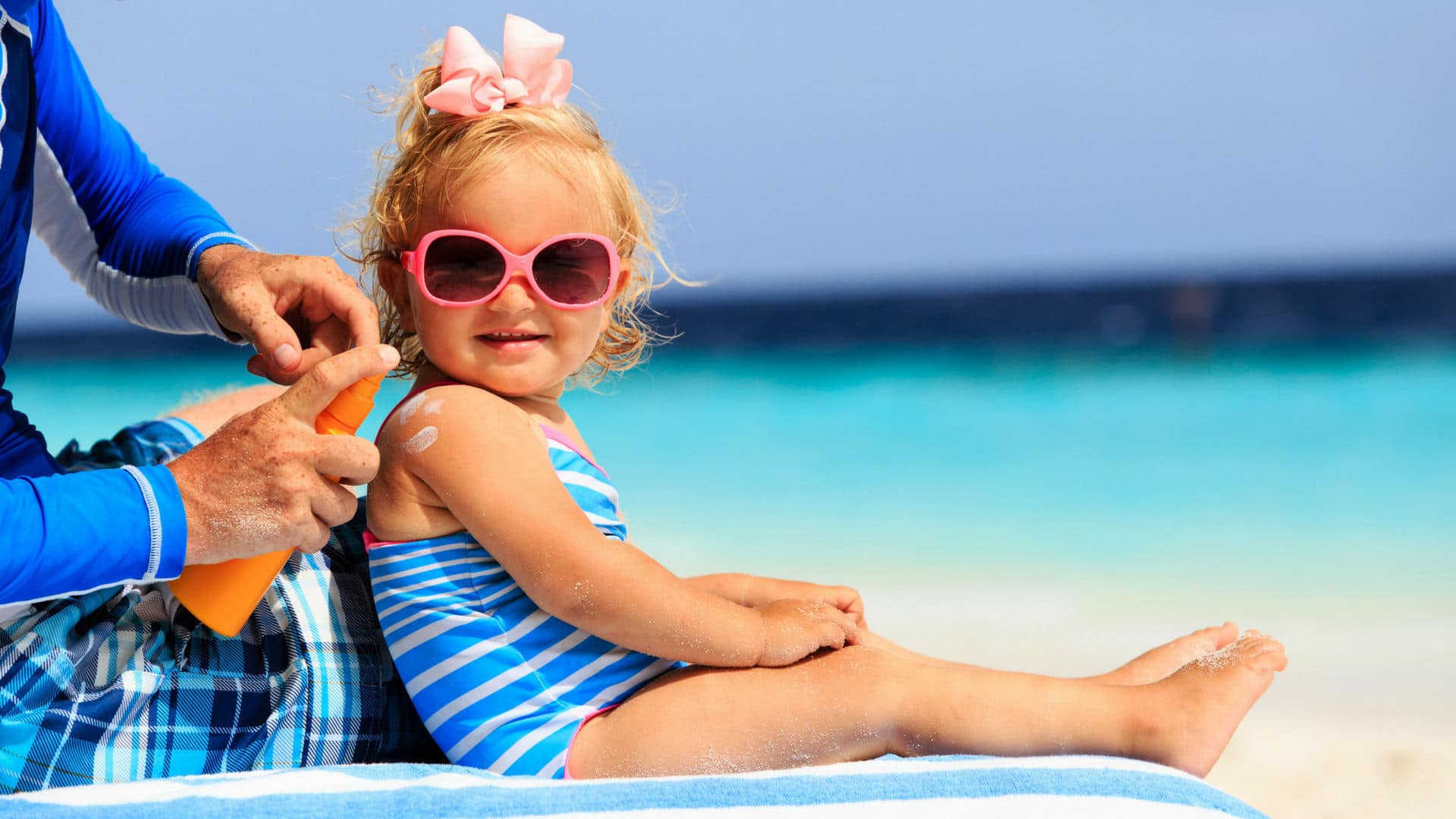
Overheating is linked to sudden infant death syndrome. Babies sleep so deeply when they’re hot, which means it hard to arouse them, increasing the risk of SIDS.
When the temperatures soar above 80℉, babies have a harder time keeping cool. Most doctors recommend that parents keep their babies out of these types of temperatures because babies are unable to sweat. Sweating is your body’s crucial method for cooling itself off. Without the ability to sweat, babies have a higher risk of dehydration and heatstroke.
If your baby becomes too hot and his temperature isn’t brought back down to normal, hyperthermia may lead to heat exhaustion, which is a severe condition. Heat exhaustion requires immediate medical attention because it can progress to heat stroke. Since 1998, over 500 babies have died from hyperthermia just in the United States.
Understanding Sun Safety for Babies
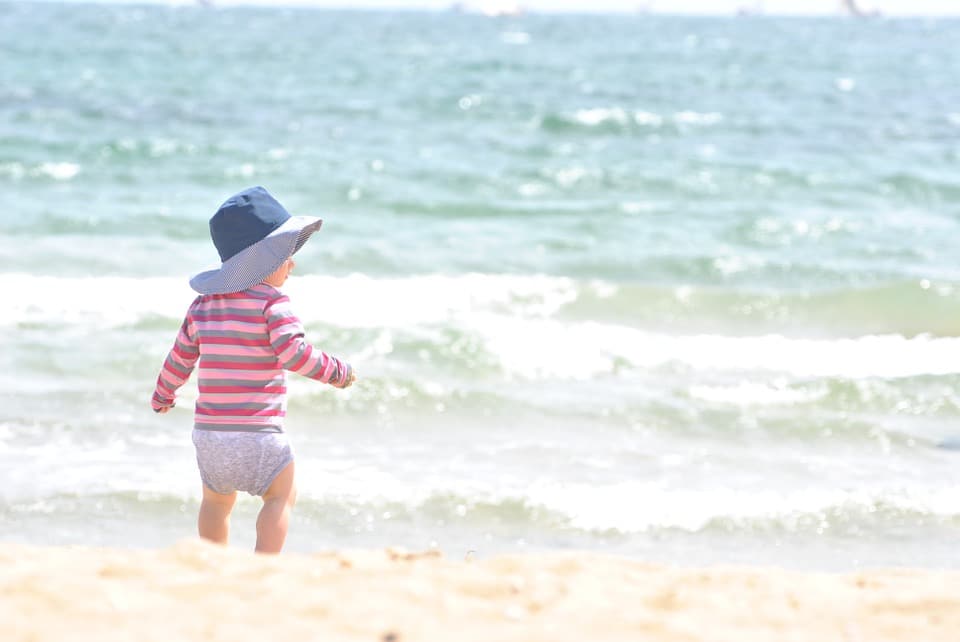
The most important thing that parents can do is keep their baby safe from the sun itself. Babies and young children are unable to cool themselves as well as adults, so they have a more significant risk of overheating or having a heat-related illness.
1Keep Out of Direct Sunlight
Keep Out of Direct Sunlight
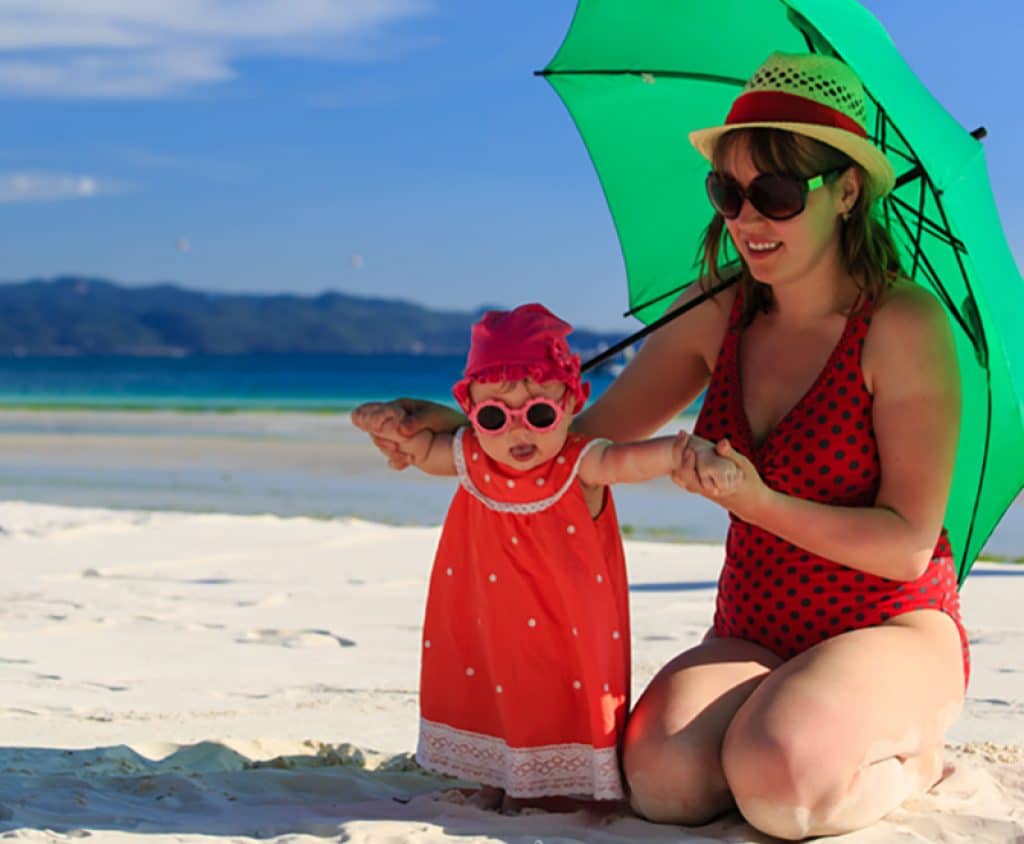
If your baby is under six months old, be proactive, and keep him out of the direct sunlight as much as possible. Baby’s skin contains too little melanin, which is the pigment that provides protection from the sun.
Just because your baby is over six months old doesn’t mean you need to six in direct sunlight all the time either. Older babies need to be kept out of the sun as much as possible, especially when the sun is at its strongest. A sunshade on the stroller is the best way to keep the sun off your baby. If you head to the park, try to sit in a pavilion or use a pop-up umbrella.
2Don’t Use Sunscreen on Babies Under Six Months of Age
Don’t Use Sunscreen on Babies Under Six Months of Age
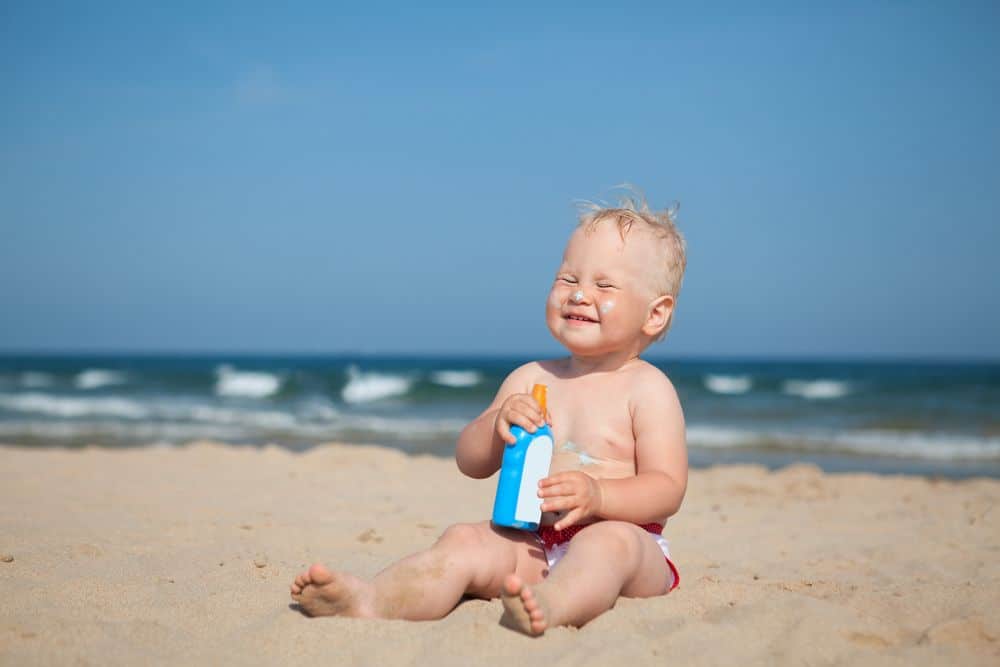
Unfortunately, sunscreen isn’t recommended for babies who are under six months old, so the best thing you can do is provide your baby with shade, clothing, and hats.
3Use the Right Sunscreen
Use the Right Sunscreen

Babies who are six months old and up can wear a high factor sunscreen. The sun protection factor needs to be between 30 and 50 SPF. Make sure that you test the sunscreen on a small area to check for any skin reactions.
You may want to know about the Best Baby Sunscreens for your baby.
4Wear Sun Protective Clothing
Wear Sun Protective Clothing
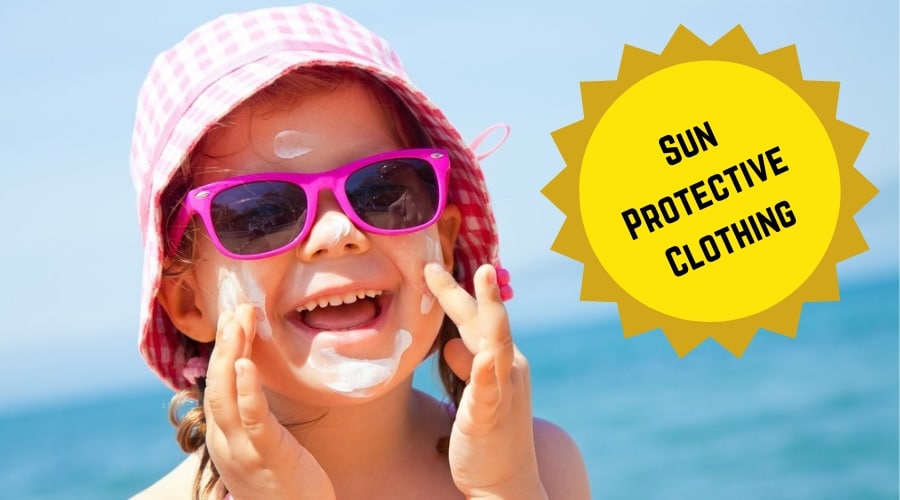
Your baby should be covered as much as possible. Cover her body, arms, and legs with clothing. Pick a sunhat with a wide brim or a flap in the back to protect her entire head and neck from the sun.
5Stay Inside During Peak Hours
Stay Inside During Peak Hours
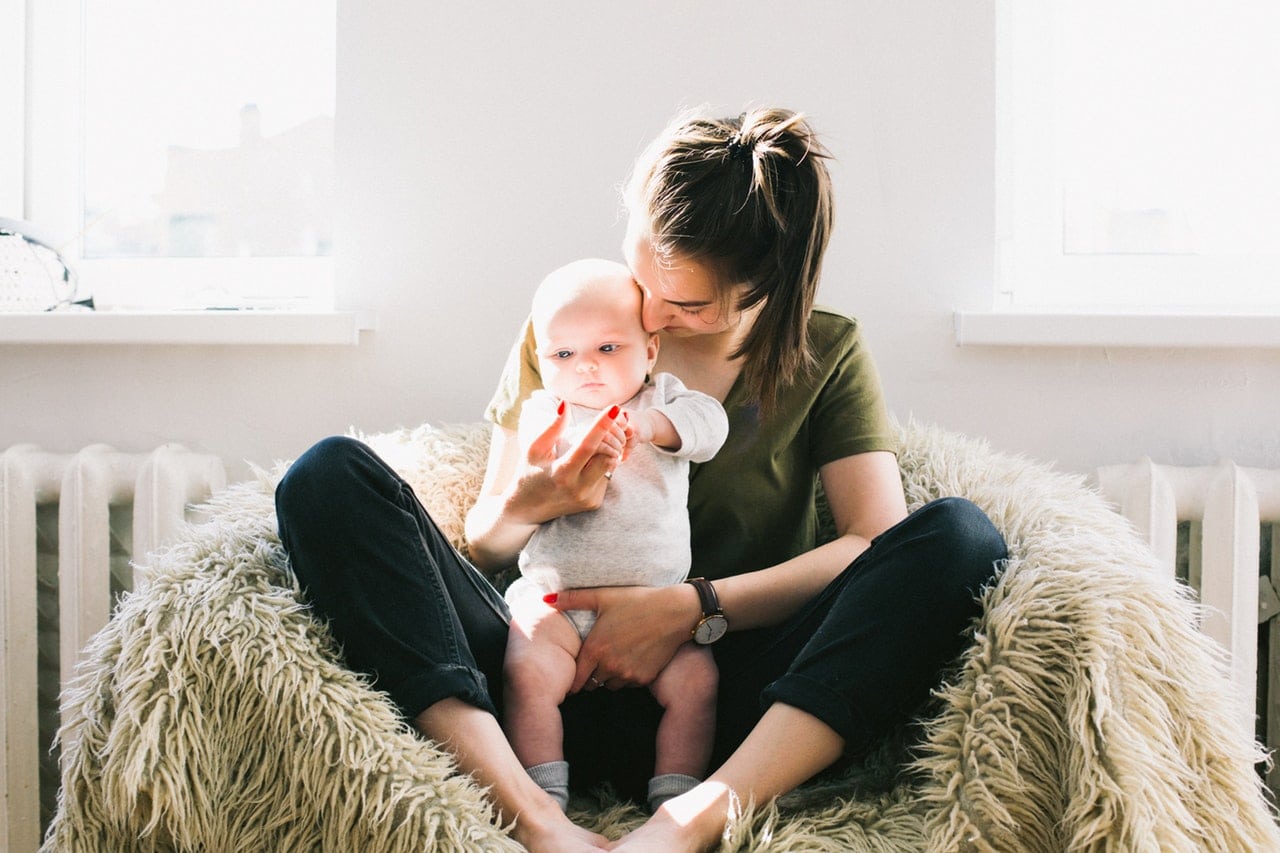
While the sun is hot all the time, the worst time for you and your baby to be outside is between 10 AM and 2 PM. Between these times is when the sun does the most harm to your skin. Plan outdoor time before or after this peak period to protect your baby.
How to Keep Baby Cool This Summer
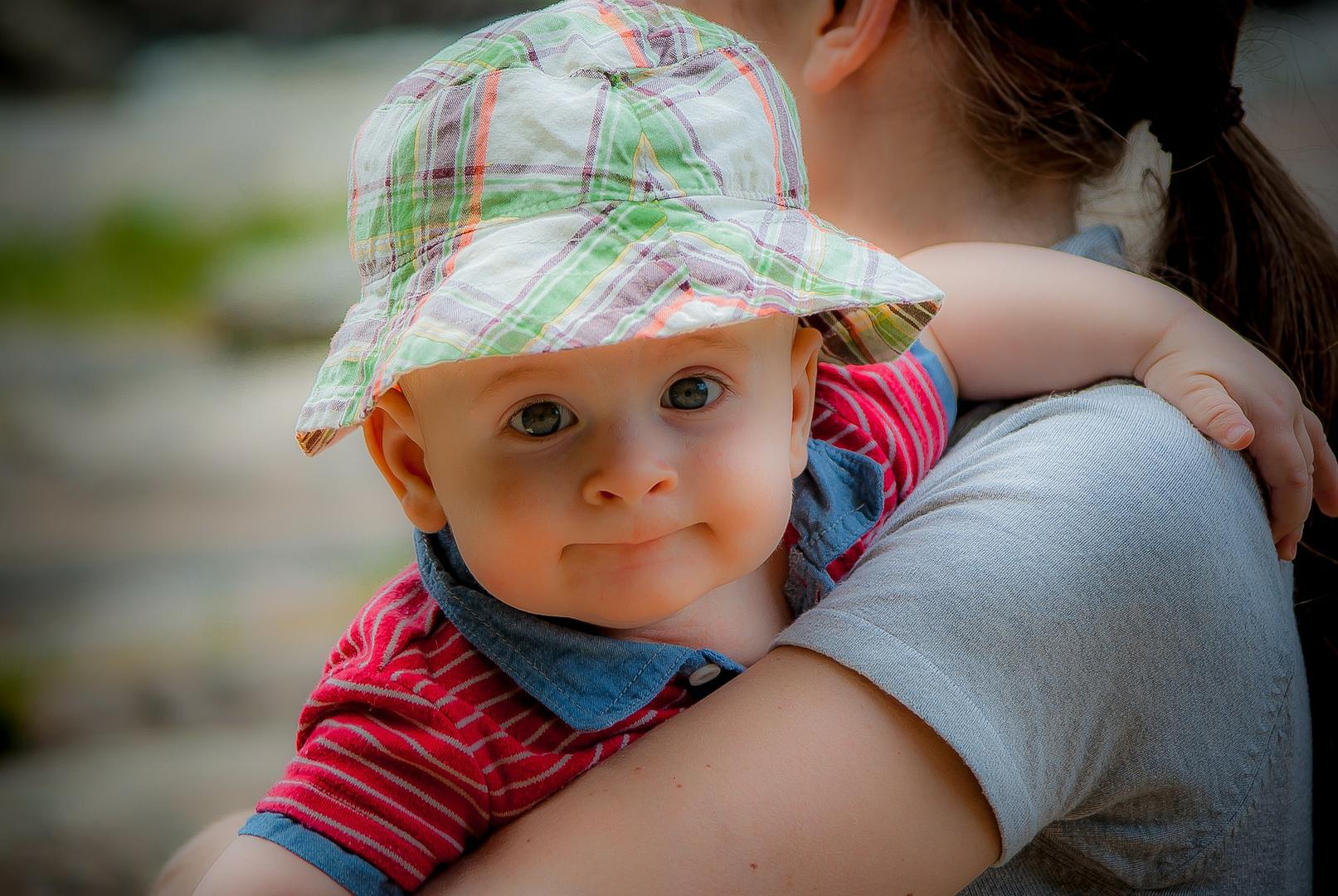
The temperatures spike in the summer, and your baby needs to stay as fresh as possible to avoid overheating.
Here are some tips to keep baby cool this summer.
A Baby Pool
For babies who are old enough, you can provide them with a baby pool. Keep the pool in the shade during hot weather and supervise your baby carefully. He can splash around and enjoy the cool water.
Give a Cool Bath
For those who don’t have air conditioning, a cool bath before bedtime helps cooling down your internal temperatures. It can prepare your child for night.
Use Blackout Curtains
Investing in blackout curtains will help keep your house fresh. Keep your baby’s bedroom cool during the day by closing blinds and curtains. Use a fan to circulate the air in the room, but just make sure the fan isn’t pointed towards your baby.
Don’t Overdress for Bedtime
Now isn’t the time to dress your baby in layers or heavy fabrics. Fleece sleepers need to wait until winter time. Many babies do just fine in a diaper with a single layer sleeping blanket.
Set the Temperatures Right
If you have an air conditioner, make sure you don’t set the temperatures too cold. Babies do best in temperatures between 68-72℉.
Dress Your Baby Correctly All The Time
If you plan to be inside with your baby, dress in loose-fitting, lightweight clothes that are made of natural fibers, such as cotton. Cotton absorbs sweat better than synthetic fabrics and encourages more air circulation. In general, dress your baby the way that you dress.
If you plan to take your baby outside, shorts and a t-shirt are perfectly fine if that’s what you plan to wear. Depending on the heat level, light-colored pants, a long-sleeved shirt, and a wide-brimmed hat are recommended, but they need to be the breathable fabric to avoid overheating.
Watch for a Heat Rash
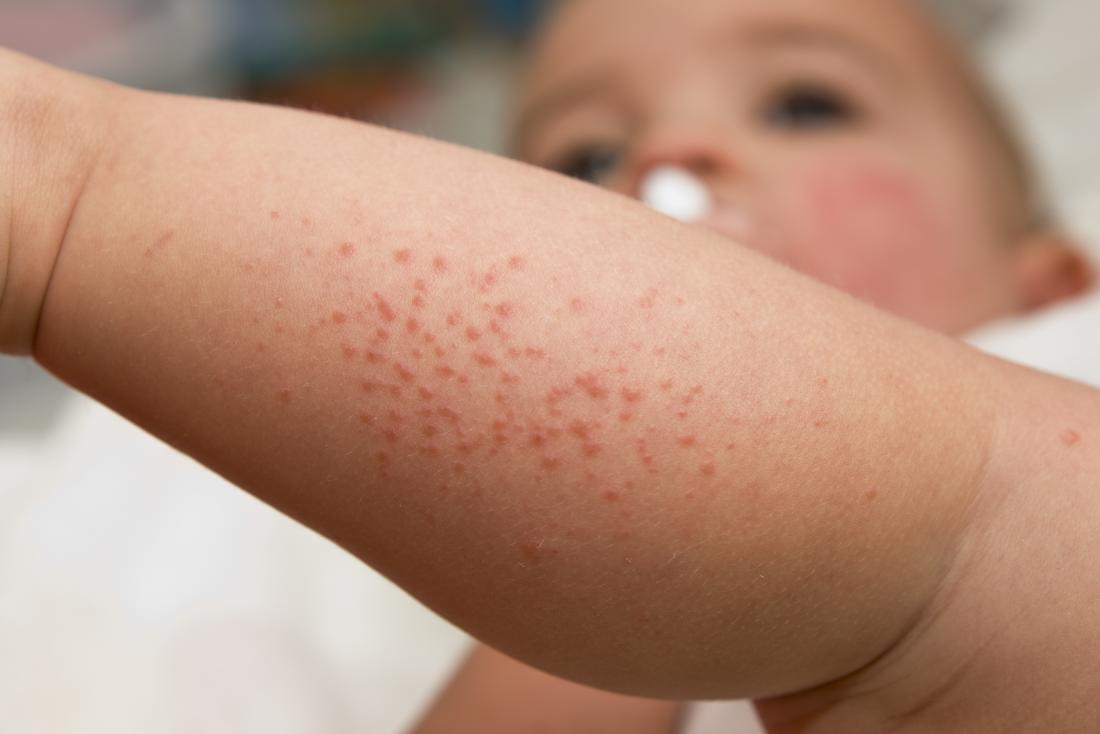
When infants are hot during the summer, you might notice tiny, red bumps that appear in clusters over his neck or groin, in the folds of her skin, at the back of his knees or the crease of her elbows.
To help get rid of the heat rash, remove the sticky clothes, and dress your baby in loose cotton clothes or just a diaper. Apply cornstarch baby powder to the areas affected by the heat rash. Move your baby to a cool, well-ventilated area to help reduce the rash.
Avoid Dehydration in Babies
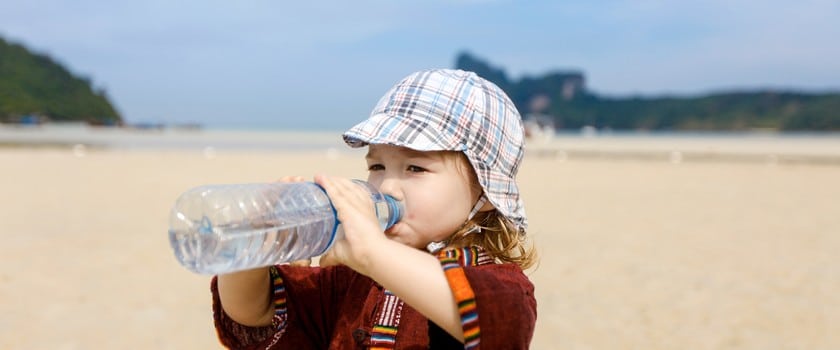
Babies, just like adults, are at risk for dehydration in the heat. Babies need to drink plenty of fluids to avoid becoming dehydrated. They must have six to eight wet diapers per day at a minimum.
If your baby is under six months old, he only needs breast milk or formula. Don’t give your baby any water. However, during hot weather, you may notice that your baby wants to feed more than usual but for shorter periods. That’s normal; just follow your baby’s desires.
Babies can drink up to 50 percent more in the summer. The average intake is two ounces per pound per day. A 10lb baby might drink 20 ounces regularly, but drink 30 ounces during the summer.
Babies who are six months old and over can have solid foods, and parents can introduce small amounts of cool water throughout the day. Don’t give water at night. Your baby is hungry and needs milk to be fed. Cool water is great throughout the day.
Even if you don’t see the sweat dripping off your infant’s forehead, he might be losing fluids to sweat in the hot weather. Check for signs of dehydration in babies.
- A flushed face
- Skin that’s warm to the touch
- Rapid breathing
- Restlessness
- Few tears when crying
- Dry mouth or tongue
Babies and the Risk of Heatstroke

When your body is unable to cool itself down, it starts to overheat. When your body’s core temperature goes above 104℉, the cells inside of the body break down and leads to parts of the body not working. Heatstroke can cause organ failure and brain damage, and, at worst, it can be fatal.
Signs of heatstroke include:
- Rising Body Temperature
- Heavy Sweating That Suddenly Stops
- Increased Thirst
- Pale, Clammy Skin
- Rapid Heartbeat
- Rapid Breathing
- A Sunken Soft Spot
- Dark Colored Urine
- Fewer Wet Diapers
- Dry Mouth and Eyes
- Lethargic
- Headache
- Muscle Cramps
- Confusion
- Vomiting
- Shortness of Breath
When to Seek Medical Attention
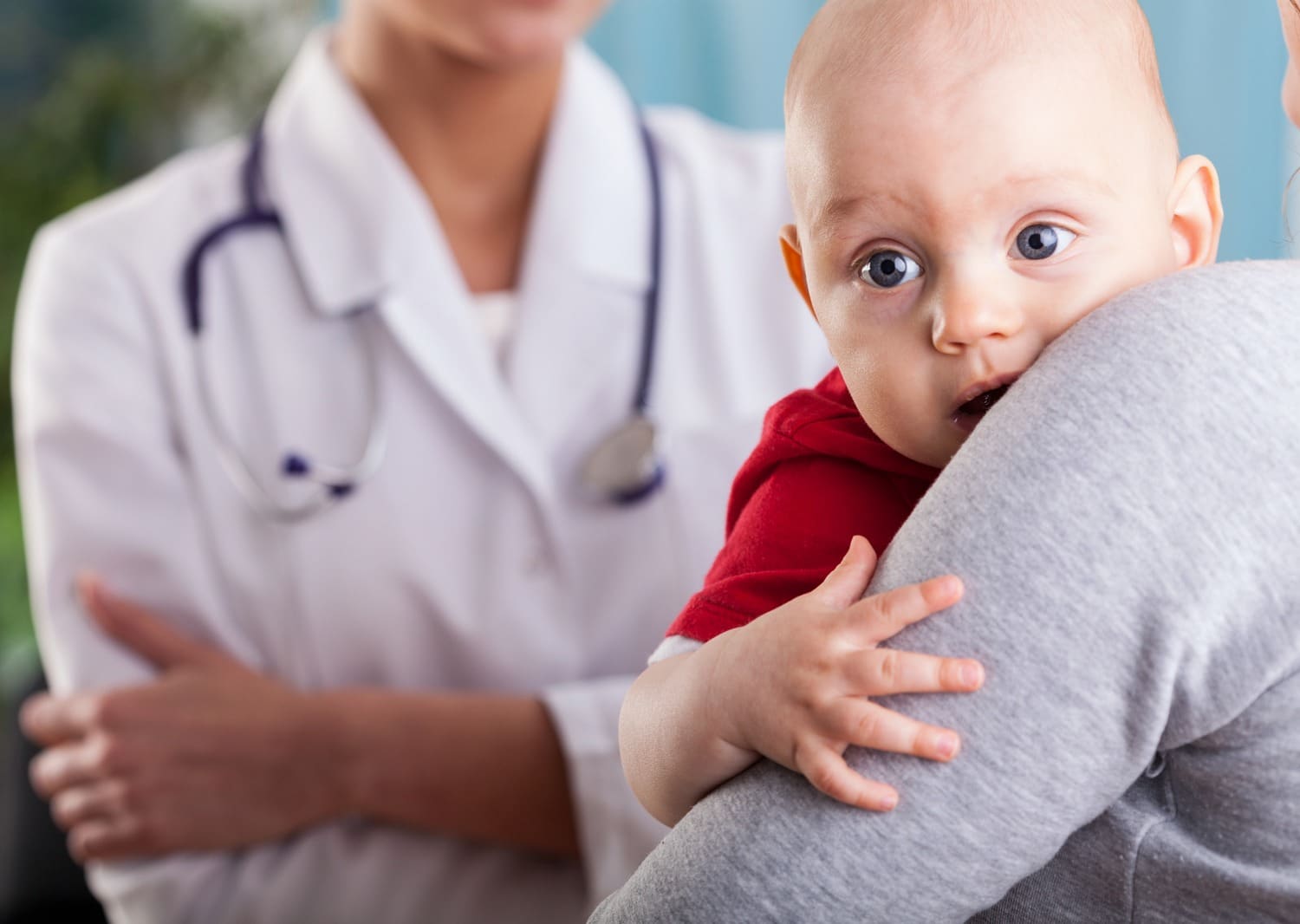
If your baby shows signs of a heat stroke, he needs urgent medical attention, so call 911 immediately for an ambulance. While you wait for medical care, move your baby to a cool area as fast a possible, and remove excess clothing to try to lower his core body temperature. Cool his skin with strips of damp fabric or spray them gently with water.
If your baby is conscious, give them cool, but not cold, water to drink. Encourage your baby to keep drinking water unless she isn’t able to swallow safely.
Keep Your Baby Safe
Most importantly, keeping your baby safe from these high temperatures and scorching sun are the best things you can do for your baby. Your baby will stay safest when out of the hot temperatures and dangerous sunlight. Seek medical attention immediately if you’re concerned about your child’s exposure to the heat.



